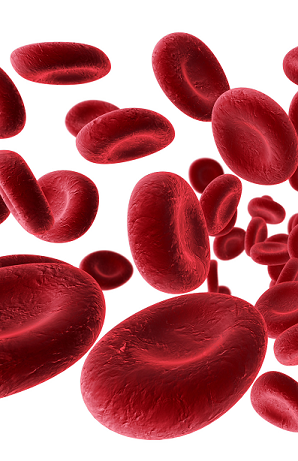Antiphospholipid Syndrome in Pregnancy
What is it?
Antiphospholipid Syndrome (APS) has been associated with a variety of medical problems in pregnancy;
blood clots in arteries and veins (deep vein thrombosis), low platelets and both early (<12wks) and later fetal loss. This syndrome occurs secondary to the presence of maternal antiphospholipid antibodies: B2 glycoprotein 1, Lupus anticoagulant, and anticardiolipin. There are blood tests that can check for the presence of these maternal antibodies. Obstetric complications that have been associated with antiphospholipid antibodies include: preeclampsia (<34 wks), intrauterine growth restriction, placental insufficiency, and preterm delivery. Some patients have all three antibodies, some only have one. The diagnosis requires 2 positive tests at least 12 weeks apart (because sometimes the presence of these antibodies is transient).
The most common medical complication with APS is a blood clot and the most likely location is in the leg (calf). Recurrent pregnancy loss <10 wks is also associated with APS.

Who should be tested for APS?
- Women with any history of a blood clot.
- Women with a history of >3 miscarriages less than 10 wks, consecutively (not sporadic), after maternal hormonal abnormalities, maternal anatomical abnormalities, and abnormal parental chromosomes were ruled out.
- Women with a history of a fetal loss after 10 weeks gestational age.
- Women with a history of preterm delivery <34 weeks secondary to severe preeclampsia or eclampsia, or placental insufficiency.
How it Affects You
Pregnant women with APS are at risk for blood clots. Usually the blood clot occurs in the deep veins of the calf. This can present as a painful swollen leg. If this occurs, there is a risk that the clot could spread to the lungs where it becomes a pulmonary embolus and is associated with maternal death. The purpose of the treatment of APS is to prevent clot formation.
How it Affects the Baby
Smaller clots occur in the placenta, and are associated with preeclampsia, growth restriction, and subsequent preterm delivery.
Treatment
Women with APS should be treated with both low-dose Aspirin and subcutaneous heparin injections. Third trimester fetal monitoring is recommended; discuss the timing of this with your physician. Treatment should continue through pregnancy and continue until 6 weeks postpartum.
Because women with APS are at a lifelong risk for thrombotic events and stroke, they should consult with their physician or a specialist regarding need for treatment after pregnancy.
Copyright 2013 V Sachar MD. All Rights Reserved.



